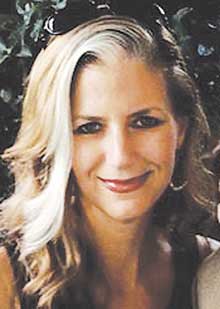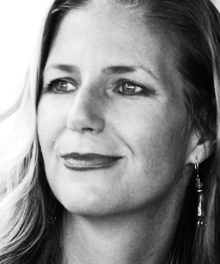 “The further a society drifts from the truth, the more it will hate those who speak it.” – George Orwell
“The further a society drifts from the truth, the more it will hate those who speak it.” – George Orwell
This Orwell quote has been floating around Facebook Nation lately. I keep seeing it, again and again, which isn’t particularly unusual. (That’s what FB memes do; they multiply.) What is unusual is that the adage keeps popping up on the pages of people who have very different values and, frankly, very different ideas about “truth.”
Rightwing conservatives, leftwing progressives, staunch libertarians… religious devotees, atheists… they’ve all been posting this meme, or, at the very least, “liking” it. Despite wildly conflicting and contradictory core beliefs, these folks all seem to have one thing in common: the certainty that Orwell had them in mind when he made the above statement. They all believe themselves in possession of the truth, and they all feel increasingly despised for speaking it.
This would tickle me if it weren’t so troubling – not so much for what it suggests about the nature of truth, but for what it says about the nature of us. About who we’re becoming.
It’s terribly tempting to embrace the persona of the maligned, misunderstood truth-teller, isn’t it? I know, because it’s my natural default mode, the fallback position I consciously battle every day. There’s something so enticing about that self-identity. You get to indulge your most arrogant, prideful, smarter-than-thou impulses, while simultaneously feeling all heroic and righteous and noble. (And put-upon; don’t forget put-upon!) You also give yourself permission to stop listening and learning (you already know everything, right?) and to stop extending love to those who don’t see the world as you do. (It’s one thing to love people who are simply misguided or mistaken… but people who hate you? Fuggedaboudit!) All in all, this way of seeing yourself is much easier, and it’s pretty darn satisfying… especially if you have a group of like-minded truth warriors with whom to commiserate/celebrate.
If you don’t – if you’re like me, and your ideas about truth don’t fall neatly into any of our increasingly rigid socio-political camps – it can be kind of lonely. But lonely self-righteousness has its own sweet appeal. It’s addictive. And, like most addictions, it should probably be resisted.
To be honest, I’m getting less and less comfortable with the whole idea of truth. It’s not that I don’t believe in the concept; I do. I believe absolute truth exists. Absolutely! I just don’t believe anybody knows what it is. Sure, lots of people have uncovered sharp, sparkling shards of truth – philosophers, poets, theologians, scientists – but one need only look at the state of our world to know we haven’t got it all figured out yet. Not even close. Perhaps a little humility is in order.
Here’s another meme I saw blazing across Facebook recently . . .
“The more wisdom you attain and the more conscious you become, the crazier you will appear to others.” – Anonymous
This one was posted by a friend who’s very outspoken about her leftwing politics and her revulsion for all things Fox News. (Or “Faux News,” as she calls it.) I’m fond of this person and I do think of her as wise; but remembering one of her rants from a few weeks earlier, I couldn’t resist teasing her with the comment: “So, you’re saying Sarah Palin is really just super-wise and hyper-conscious?” I’m not sure she got the joke.
But it wasn’t really a joke. I was trying to make a point about perspective. When there are so many people in the world who fancy themselves wise – and are considered wise by others – and those “wise” people disagree with each other so vehemently about so many basic aspects of life . . . shouldn’t we all be willing to at least entertain the possibility that we aren’t as smart as we think we are? Or that even if we are that smart, maybe being smart isn’t the most important thing?
It’s great to have convictions and principles, but when my convictions and principles estrange me from my fellow man – when they make it harder to love my neighbor as myself – perhaps I’m holding them a bit too close, a bit too sacred.
Ah, but I’ve just gone and undermined my own argument, haven’t I? I’ve proposed “love thy neighbor” as a conviction/principle worth upholding above others, a “truth” that’s worthy of the name. Well, okay – so, I contradict myself. It’s not the first time and it certainly won’t be the last. As Walt Whitman so scrumptiously put it, “I am large. I contain multitudes.” By the way, so do you.
Let me tell you about something that happened to me recently.
It was the Monday of Holy Week. I was leaving the Y after my morning workout, running through my mental To Do list – fretting, as usual, about all the things on my plate – when just outside the door I saw a little old man. When I say “little old,” I mean it. He was small and rather ancient looking, but in a most appealing way. I smiled distractedly, tossed off the requisite “Hey, how ya doin’?” as I trotted past him toward my car.
But the man called out, “Hello! You asked how I’m doing. I’d like to tell you!”
What?! Sigh. Though already running late, I turned to face him. (What else can you do?) He was dapper and trim, wearing a pale blue sweater vest that matched his eyes, also pale blue and full of mirth. His white hair framed a wonderful face that gave off a sort of beatific light.
“I’m 95 years old,” he said, “and though I know I’m not long for this world, I’ve never felt better in my life. I believe it’s my mission to spread good will to all people, wherever I am.”
So, now I’m intrigued. There was something about this man. “Has that always been your mission, or did you come to it late in life?” I ask.
“Well, it sort of just came upon me,” he says. “The older I get, the more I’m convinced that I’m much more than just this temple I live in. I have work to do.”
(I hope I’m telling this story well. I don’t want to make this man sound ridiculous, because he was anything but.)
He asked me my name, and I told him. He says, “Margaret, by talking to me today, you’ve saved me.” Saved me. Seriously.
He reaches in his pocket and pulls out a tiny flashlight on a keychain. Blue, like his merry eyes and his sweater vest. He hands it to me and asks, “Can you read what’s written here?”
So I do. “A Gift From Pinckney and Carroll Eve, Beaufort SC, 29902.” (Carroll, he says, is his “beautiful wife.”) “My mother was a Pinckney and my father was an Eve,” he says. “I tell everybody that makes me a descendent of Adam and Eve… which means we’re related.” He laughs. “I want you to keep this flashlight to remember me by.”
I was so touched by this man – not just his words, but his very way – that my eyes filled with tears and I threw my arms around his neck. Then, remembering I was covered in sweat, I pulled away and apologized. Mr. Eve just laughed and said, “The good book tells us we are to greet each other with a holy kiss. But I don’t go in for that. I’ll always settle for a holy hug . . . with no sensuality.” (“No sensuality.” That killed me!) Then he pulled me into his arms again and hugged me tight, sweat and all. I thanked him and floated to my car, where I attached my tiny flashlight to my keychain. Then I drove away, feeling like a new creation.
Why am I telling you this story? Because I’d trade all the philosophies and principles and maxims in the world – and certainly all the memes on Facebook – for another encounter like that one. Truth can’t always be told in words. Sometimes, truth comes dressed in a sweater vest, bearing a flashlight. But you have to be open to it – your mind, and especially your heart – or you might just pass it by. I almost did.
Thank you, Mr. Eve, for your gift of light. I hope you see this essay. And if you do, consider it a love letter. (With no sensuality, of course.)






